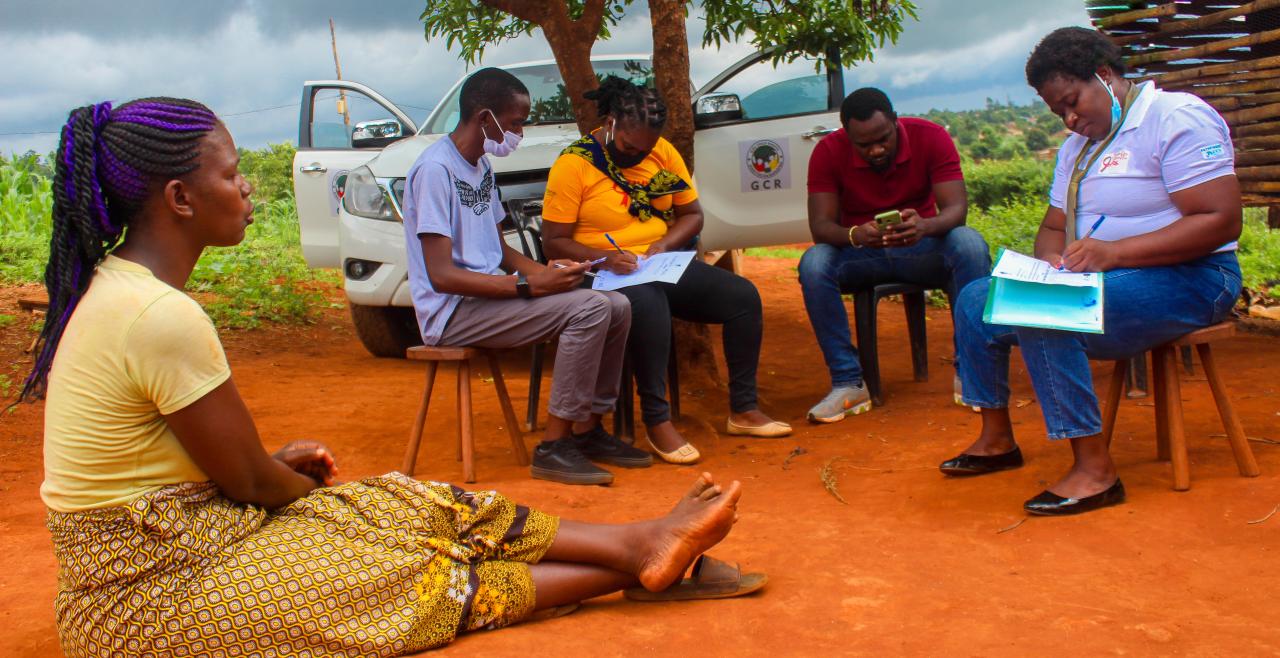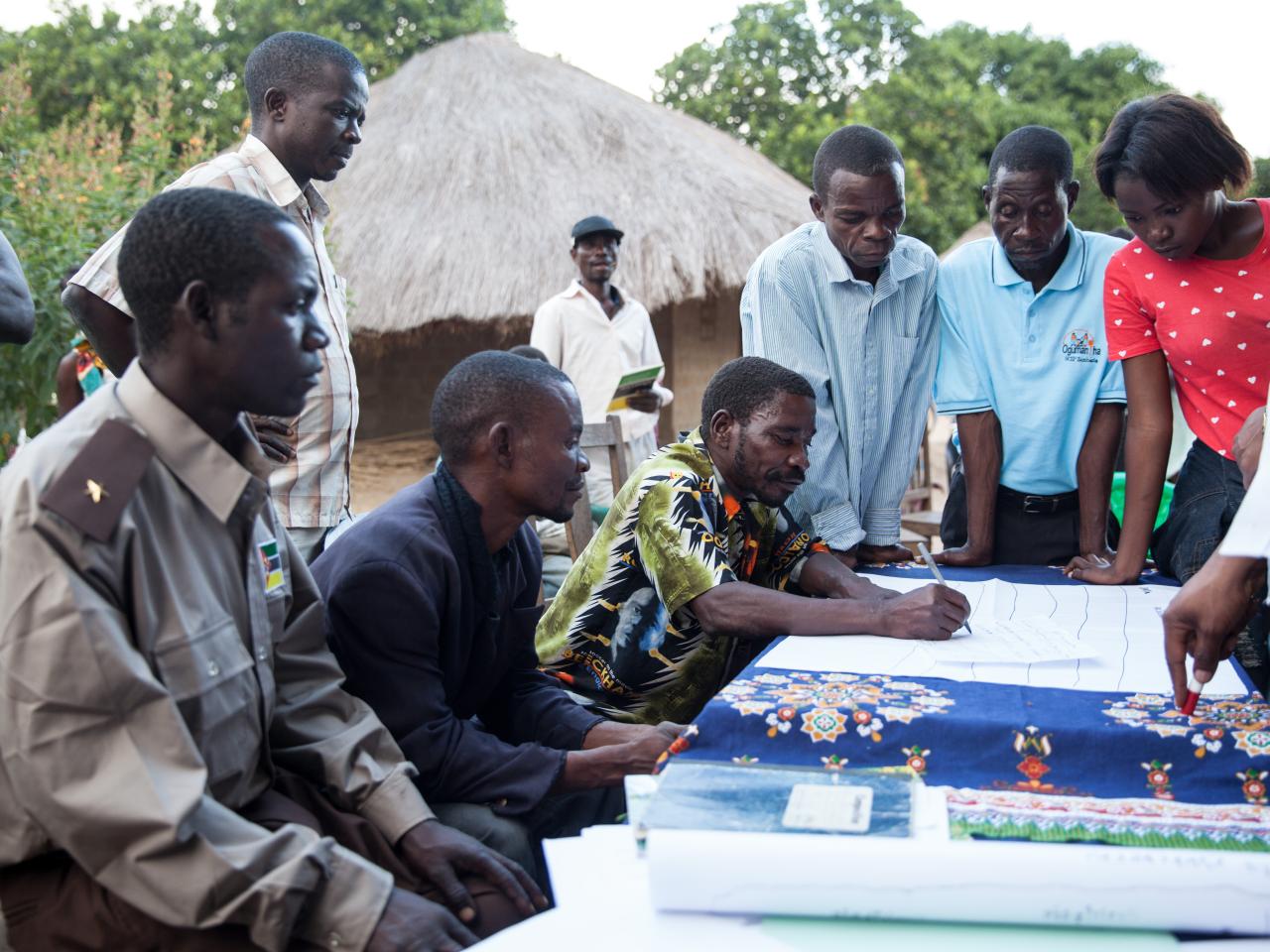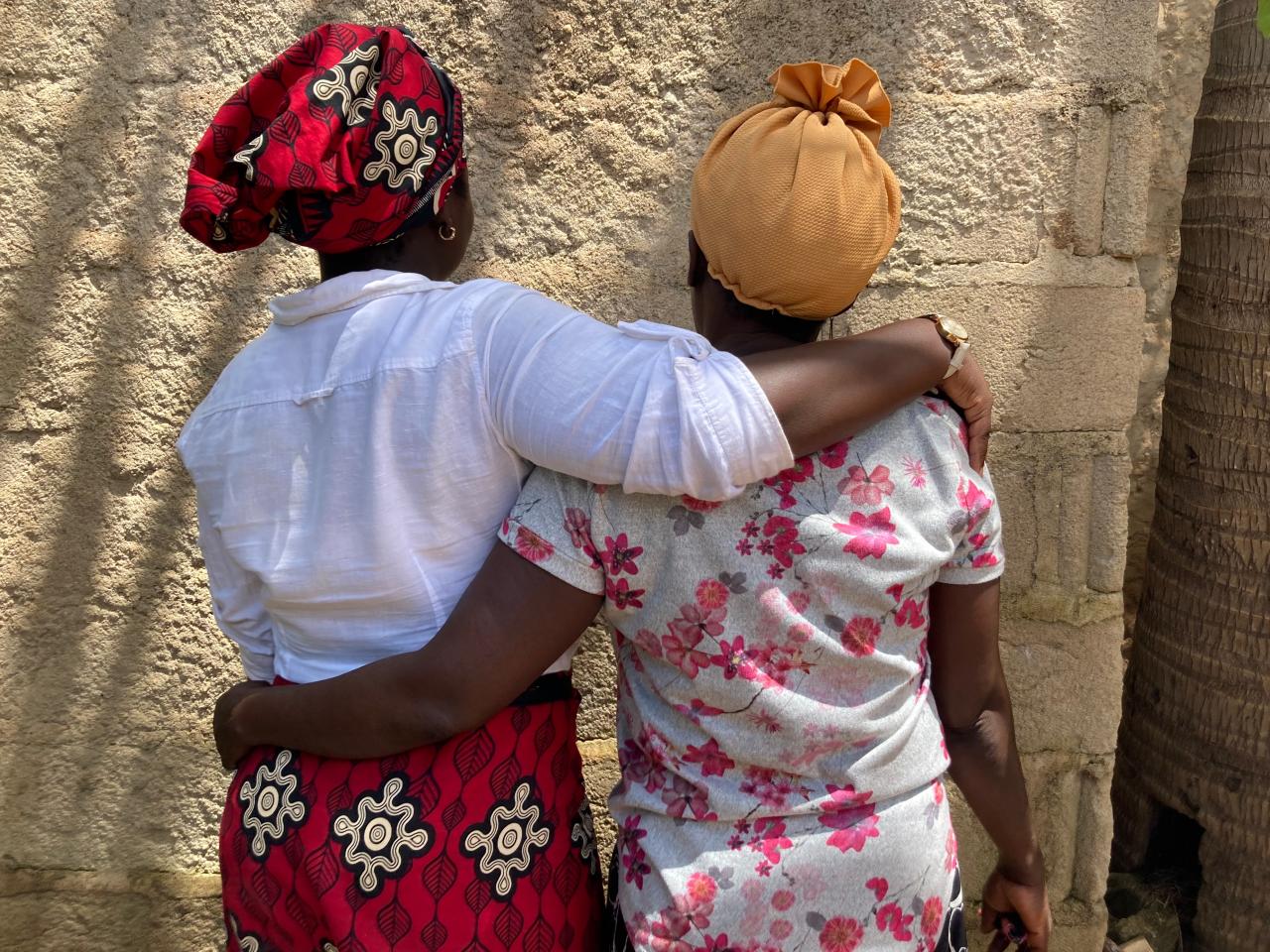"We can eliminate violence if we work together" - multi-sectoral teams are eliminating gender-based violence in Mozambique

MANICA, Mozambique - Judite Nota is 36 years old and has been a Mozambican Government employee for over 13 years. She has always worked to eliminate gender-based violence (GBV) as her primary professional and personal goal. Today, she is Head of the Department of Women Affairs and Social Action in Mossurize district, Manica province.
"As a woman and a civil servant, I am passionate about ensuring the well-being of Mozambican women and girls, so I have made the commitment to work daily for the elimination of gender-based Violence in my country," shares Ms. Nota.
Spreading the word from community to community is critical. Ms. Nota shares information on policies and laws that protect the rights of women and girls, including access to sexual and reproductive health information and services; supports the referral of violence and child marriage cases, and is now also working in the most isolated communities in her province.
“It is by working together and joining forces that we will have a greater impact." - Judite Nota, Mozambican civil servant
"Before, due to lack of resources, we could not reach the most isolated areas of our province, where several violence cases were occurring. But with the support of the Spotlight Initiative, through the provision of vehicles, my team finally has the mobility to take action in a more geographically widespread way and spread messages about violence against women and girls”, shares Ms. Nota, enthusiastically.
The Spotlight Initiative has provided ten vehicles and 50 motorbikes to the member institutions of the Multi-Sectoral Mechanism in the target districts where the Initiative operates. Three cars and 17 motorbikes were delivered to Manica province, ensuring the mobility of the teams and the GBV response.
“We can now act by the law for cases classified as crimes in the most distant communities. We act fast and collectively and fulfil the principle of leaving no girl and woman behind," she says.
Joining forces for a greater impact in the elimination of violence
"Our interventions operate in a coordinated and multisectoral manner, meaning that we act as a single team. Police, the Office of the Public Prosecutor and the Department of Women's Affairs and Social Action, local leaders, civil society organisations, communities, and girls and boys in schools, among many others, are all working together to report cases of child marriages and violence and to promote and expand access to sexual and reproductive health services,” explains Ms. Nota.
To improve efficiency and provide comprehensive services, the Spotlight Initiative has supported, technically and financially, existing mechanisms at central, provincial and district levels to end violence against women and girls, including the Intersectoral Committee for Adolescent and Youth Development Support (CIADAJ) and the Multisectoral Mechanism to Support Women Victims of Violence (MMSMVV). “It is by working together and joining forces that we will have a greater impact," says Ms. Nota.
A trustworthy team
The decentralisation of GBV reporting, referral and response services, and multi-sectoral action against GBV that includes community agents, have promoted community outreach and established a newly found trust among women and girls.
"People used to think twice before reporting violence cases because they were afraid—the fear of impunity. As the law was not always applied to perpetrators because of the lack of access to services or, sometimes, because of the social norms, a fear-based environment was created. With our work, and the training and integration of key actors in our response to GBV, this has been changing significantly," explains Ms. Judite.
"Women and girls are supported by their leaders and institutions and are the first to see the results. The communities know they can count on us." - Judite Nota, Mozambican civil servant
In 2021, the Spotlight Initiative trained over 800 leaders (community, religious and traditional) in fighting and preventing GBV. In addition, three provincial and one national traditional leaders' forums were created to join efforts and exchange experiences in tackling violence against women and girls.
"Working in an integrated manner with community leaders and the police increases community trust. That is, communities know who we are, that they have services at their disposal, and [know] that we will act. Today, we all deliver a clear and coordinated message about criminalising violence and harmful practices such as child marriage. Women and girls are supported by their leaders and institutions and are the first to see the results. The communities know they can count on us," explains Ms. Nota.
As of 2019, the team that Ms Judite is part of meets twice a month and makes quarterly work monitoring visits. They have referred more than 200 cases of gender-based violence.
The Spotlight Initiative is a global United Nations initiative that has received generous support from the European Union. It aims to eliminate all forms of violence against women and girls. In Mozambique, the Spotlight Initiative is led by the Ministry of Gender, Children and Social Action (MGCAS) in partnership with the United Nations and civil society organizations (CSOs).
By Joaquim Mendonça and Lara Longle


